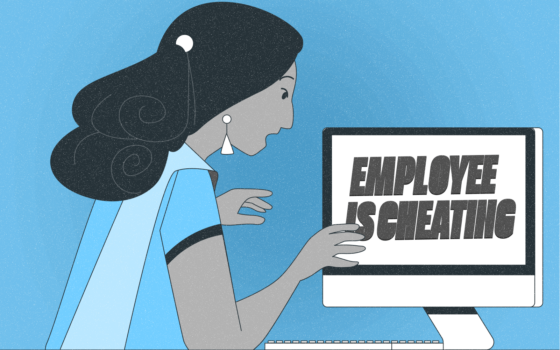HR Risk Management
Understanding HR Risk Management
Human Resources Risk Management is a critical aspect of organizational success, focusing on identifying, assessing, and mitigating risks associated with the workforce. In today's dynamic business landscape, HR professionals must navigate a complex web of challenges to ensure their organizations remain compliant, productive, and resilient.
HR risk management encompasses a wide range of activities, from talent acquisition and retention to workplace safety and regulatory compliance. By implementing effective risk management strategies, HR departments can protect their organizations from potential legal, financial, and reputational damages while fostering a positive work environment.
Key Components of HR Risk Management
Effective HR risk management involves several key components that work together to create a comprehensive approach to mitigating workforce-related risks. These components include:
1. Risk Identification
The first step in HR risk management is identifying potential risks that could impact the organization. This involves conducting thorough assessments of various HR functions, including recruitment, training, performance management, and employee relations. Common HR risks include:
- Discrimination and harassment claims
- Workplace safety incidents
- Talent shortages and skill gaps
- Compliance violations
- Employee turnover and disengagement
- Data breaches and privacy concerns
2. Risk Assessment
Once risks have been identified, HR professionals must assess their potential impact and likelihood of occurrence. This involves analyzing historical data, industry trends, and organizational factors to determine the severity of each risk. Risk assessment helps prioritize mitigation efforts and allocate resources effectively.
3. Risk Mitigation Strategies
Developing and implementing strategies to mitigate identified risks is crucial for effective HR risk management. These strategies may include:
- Implementing robust policies and procedures
- Providing comprehensive training programs
- Enhancing recruitment and selection processes
- Improving employee communication and engagement initiatives
- Strengthening data security measures
- Conducting regular audits and compliance checks
4. Monitoring and Evaluation
Continuous monitoring and evaluation of HR risk management efforts are essential to ensure their effectiveness. This involves tracking key performance indicators (KPIs), conducting regular risk assessments, and adjusting strategies as needed based on changing circumstances and emerging risks.
The Role of HR in Risk Management
HR plays a pivotal role in managing organizational risks, serving as a strategic partner to leadership and other departments. Some key responsibilities of HR in risk management include:
1. Policy Development and Implementation
HR is responsible for creating and implementing policies that address potential risks and promote a safe, compliant work environment. These policies may cover areas such as code of conduct, anti-discrimination, workplace safety, and data privacy. Effective policy development requires a deep understanding of legal requirements, industry best practices, and organizational culture.
2. Compliance Management
Ensuring compliance with labor laws, regulations, and industry standards is a critical aspect of HR risk management. HR professionals must stay up-to-date with changing legal requirements and implement systems to monitor and maintain compliance across the organization. This includes managing documentation, conducting internal audits, and addressing any compliance gaps promptly.
3. Talent Management and Succession Planning
Effective talent management is essential for mitigating risks associated with skill shortages and key personnel departures. HR must develop comprehensive strategies for attracting, developing, and retaining top talent, as well as implementing succession plans for critical roles. This helps ensure business continuity and reduces the risk of knowledge loss and productivity disruptions.
4. Employee Relations and Conflict Resolution
Managing employee relations and addressing conflicts promptly is crucial for maintaining a positive work environment and reducing the risk of legal disputes. HR professionals must develop effective communication channels, implement fair grievance procedures, and provide mediation services to resolve conflicts before they escalate.
5. Training and Development
Providing comprehensive training and development programs is essential for mitigating risks associated with skill gaps, compliance violations, and workplace safety incidents. HR must assess training needs, design effective programs, and ensure all employees receive the necessary education to perform their roles safely and compliantly.
Emerging Trends in HR Risk Management
As the business landscape evolves, new challenges and opportunities emerge in HR risk management. Some key trends shaping the future of HR risk management include:
1. Technology and Digitalization
The increasing adoption of technology in HR processes brings both opportunities and risks. While digital tools can enhance efficiency and data-driven decision-making, they also introduce new cybersecurity and privacy concerns. HR professionals must work closely with IT departments to ensure robust data protection measures are in place and that employees are trained in cybersecurity best practices.
2. Remote and Hybrid Work Environments
The shift towards remote and hybrid work models has introduced new challenges in HR risk management. These include ensuring compliance with labor laws across different jurisdictions, maintaining employee engagement and productivity, and addressing potential mental health and wellbeing issues associated with remote work. HR must develop strategies to support remote workers effectively while mitigating associated risks.
3. Diversity, Equity, and Inclusion (DEI)
As organizations prioritize DEI initiatives, HR plays a crucial role in managing associated risks and opportunities. This includes addressing potential discrimination and bias in hiring and promotion practices, fostering an inclusive workplace culture, and ensuring compliance with evolving DEI-related regulations. HR must develop comprehensive DEI strategies that go beyond mere compliance to drive meaningful organizational change.
4. Mental Health and Wellbeing
The growing focus on employee mental health and wellbeing presents both opportunities and risks for organizations. HR must develop strategies to support employee mental health, including implementing wellness programs, providing access to mental health resources, and fostering a culture that destigmatizes mental health issues. Failure to address mental health concerns can lead to increased absenteeism, reduced productivity, and potential legal liabilities.
5. Gig Economy and Contingent Workforce
The rise of the gig economy and increased reliance on contingent workers introduce new challenges in HR risk management. HR professionals must navigate complex classification issues, ensure fair treatment of all workers, and develop strategies to integrate contingent workers effectively into the organization while mitigating associated legal and operational risks.
Best Practices for Effective HR Risk Management
To implement a successful HR risk management program, organizations should consider the following best practices:
1. Develop a Risk-Aware Culture
Fostering a risk-aware culture throughout the organization is essential for effective HR risk management. This involves educating employees at all levels about potential risks, their roles in mitigating those risks, and the importance of reporting concerns promptly. Leadership should lead by example, demonstrating a commitment to risk management and ethical behavior.
2. Implement Robust HR Information Systems
Investing in comprehensive HR information systems (HRIS) can significantly enhance risk management efforts. These systems can help streamline HR processes, improve data accuracy, and provide valuable insights for risk assessment and mitigation. When selecting an HRIS, consider factors such as data security, compliance features, and integration capabilities with other organizational systems.
3. Conduct Regular Risk Assessments
Performing regular risk assessments is crucial for identifying emerging risks and evaluating the effectiveness of existing mitigation strategies. Develop a structured approach to risk assessment, involving key stakeholders from various departments and leveraging both qualitative and quantitative data to inform decision-making.
4. Enhance Communication and Transparency
Clear and transparent communication is essential for effective HR risk management. Develop comprehensive communication strategies to keep employees informed about policies, procedures, and potential risks. Encourage open dialogue and provide channels for employees to report concerns without fear of retaliation.
5. Collaborate with Other Departments
HR risk management requires collaboration with various departments, including legal, finance, IT, and operations. Foster strong relationships with these departments to ensure a holistic approach to risk management. Regular cross-functional meetings and joint initiatives can help align risk management efforts across the organization.
6. Stay Informed of Legal and Regulatory Changes
The regulatory landscape governing HR practices is constantly evolving. HR professionals must stay informed about changes in labor laws, employment regulations, and industry standards. Consider partnering with legal experts or joining professional associations to stay up-to-date on regulatory developments and best practices.
7. Leverage Data Analytics
Utilizing data analytics can provide valuable insights for HR risk management. By analyzing workforce data, HR can identify trends, predict potential risks, and measure the effectiveness of mitigation strategies. Invest in analytics tools and develop the necessary skills within the HR team to leverage data effectively.
Conclusion
HR risk management is a critical function that plays a vital role in organizational success. By identifying, assessing, and mitigating workforce-related risks, HR professionals can protect their organizations from potential legal, financial, and reputational damages while fostering a positive work environment.
As the business landscape continues to evolve, HR risk management must adapt to address emerging challenges and opportunities. By staying informed of industry trends, leveraging technology, and implementing best practices, HR professionals can develop robust risk management strategies that support organizational resilience and growth.
Ultimately, effective HR risk management requires a proactive, collaborative approach that engages stakeholders across the organization. By fostering a risk-aware culture, implementing comprehensive strategies, and continuously evaluating and improving risk management efforts, HR can position itself as a strategic partner in driving organizational success and sustainability.


